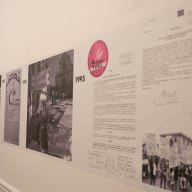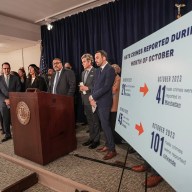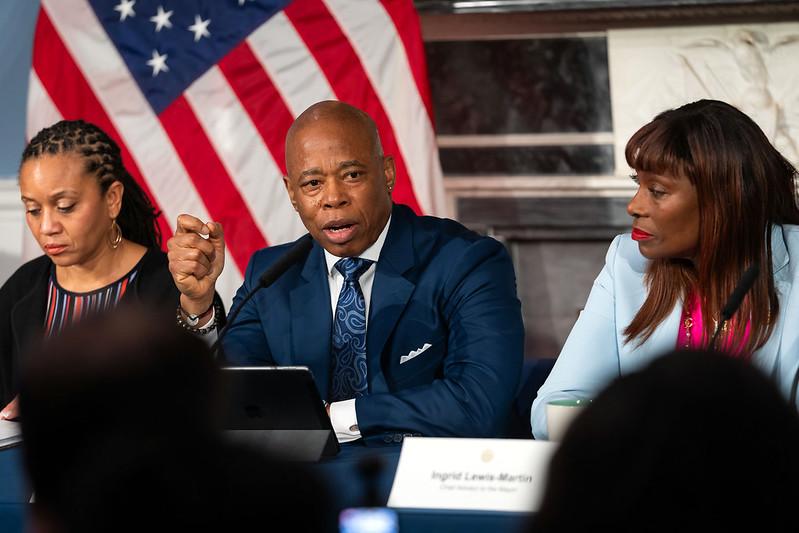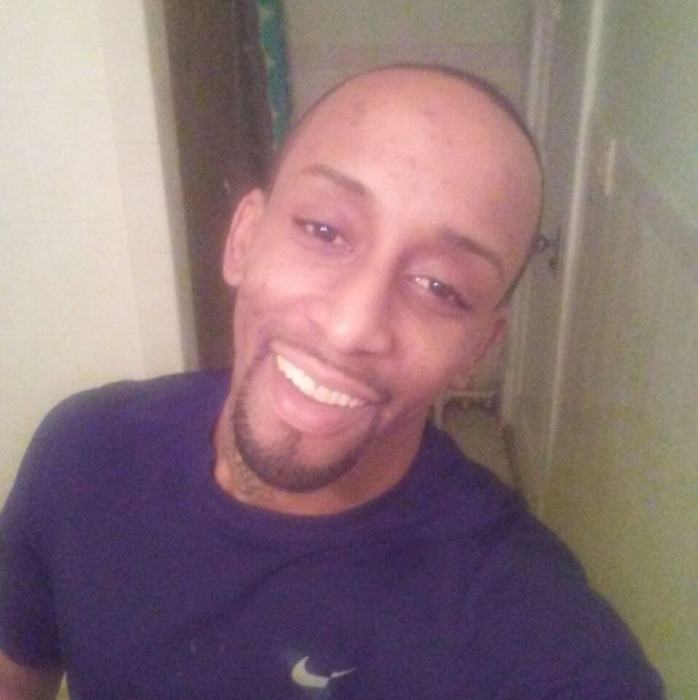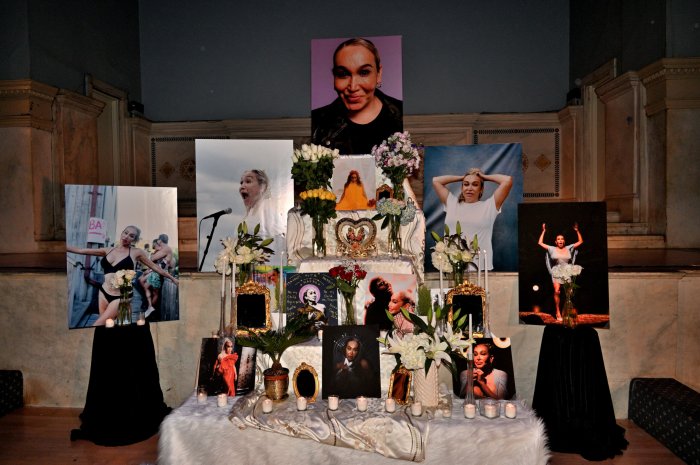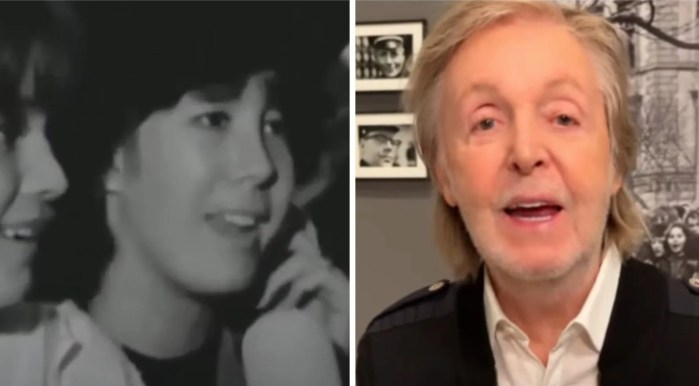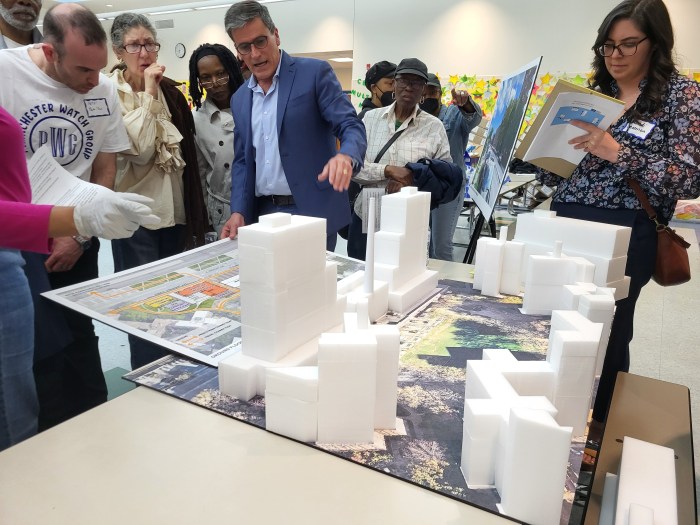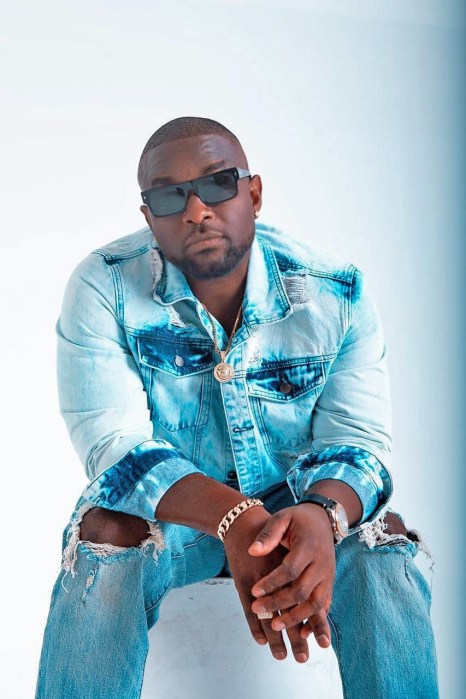Just days before tens of thousands –– including contingents led by major LGBT community organizations –– are expected to march in Harlem to protest abuses in the NYPD’s stop and frisk practices, the police department has announced changes to its Patrol Guide aimed at providing more respectful treatment of transgender and other gender-nonconforming (TGNC) New Yorkers.
City Council Speaker Christine Quinn, who has endorsed the June 17 Harlem march, announced the changes at the Council’s annual LGBT Pride event on June 12 at Cooper Union’s Great Hall.
“The NYPD’s new Patrol Guide makes it clear that all people must be treated with respect,” Quinn said in a written release announcing the reforms. “I applaud Commissioner [Raymond] Kelly for working closely with the City Council and the LGBT community to create respectful, inclusive guidelines that are appropriate for transgender New Yorkers.”
The NYPD LGBT Advisory Panel –– established in 2009 after the department sustained months of criticism from the community over arrests of gay men in adult video stores that were widely seen as false arrests –– was among the honorees Quinn and fellow Council members recognized at the Cooper Union event.
The release announcing the Patrol Guide revisions quoted Kelly saying, “The changes to the Patrol Guide are significant, affecting more than 12 separate Patrol Guide provisions. The changes range from establishing search procedures for transgender arrestees to requiring officers to address arrestees by their preferred name. Senior members of my staff worked closely with representatives from the LGBT community to draft these changes, and I applaud their work.”
Leaders active with the transgender community voiced praise for the revised Patrol Guide.
Sharon Stapel, the executive director of the New York City Anti-Violence Project (AVP) and a member of the Advisory Panel, said, “These Patrol Guidelines changes are a result of years of work by advocates and community members and reflect a willingness of the NYPD to prioritize the increased safety of TGNC people in New York City.”
Stapel is one of the co-chairs of the stop and frisk protest’s LGBT organizing effort, and at a press conference on June 5 was harshly critical of NYPD practices.
In a separate release, AVP detailed the changes to the Patrol Guide. Police officers are required to recognize and address individuals according to that person’s gender identity and expression, regardless of their sex assigned at birth or indicated on their identification documents. Discourteous or disrespectful remarks regarding gender identity and expression and sexual orientation are prohibited, as are personal searches aimed at determining an individual’s gender. Individuals who are searched have the right to request the gender of any officer doing so, and if refused have the right to a documented explanation.
Individuals in NYPD custody will be held in sex-segregated facilities according to their gender identity, unless there is a concern for that person’s safety. In that case, the individual will be held as a “special category prisoner,” but they cannot be cuffed to rails, bars, or chairs for unreasonable periods of time. Across the nation, transgender prisoners are often denied incarceration in a facility matching their gender identity, but are considered unsafe in those housing members of the gender they were assigned at birth. As a result, they can find themselves in solitary confinement under dire conditions.
The AVP release made clear that “there remains work to do” –– first and foremost, effective implementation. The group also endorsed legislation pending before the Council that would increase protections against police profiling based on categories including gender identity and expression and sexual orientation.
The Council’s release on the new Patrol Guide quoted other leading LGBT advocates praising the reforms.
Carrie Davis, the director of community services at the LGBT Community Center and an Advisory Panel member, said, “These crucial changes to the Patrol Guide are a major step forward in improving conditions for transgender and gender non-conforming people in New York City.”
Melissa Sklarz, another Panel member who is a longtime trans activist and president of the Stonewall Democrats of New York City, said, “I am proud and happy of the work to change the culture between the NYPD and trans women. These Patrol Guide modifications are a testament to our community perseverance and the ability of the NYPD to compromise.”
Melissa Goodman, the senior litigation and policy counsel for LGBT rights at the New York Civil Liberties Union, which has also taken a tough posture against the NYPD on stop and frisk, said, “These Patrol Guide changes will help ensure that NYPD officers treat transgender and gender-nonconforming New Yorkers with courtesy, professionalism, and respect… This protects basic civil liberties and strengthens trust between police officers and the public they serve.”
“This is a watershed moment when all New Yorkers can be proud,” said Michael Silverman, executive director of the Transgender Legal Defense and Education Fund. “Our nation's largest police force, serving our nation's most diverse citizenry, listened to the voices of transgender New Yorkers and took steps to address their concerns about policing practices.”
Andrea Ritchie, a civil rights attorney who is coordinator of Streetwise and Safe, a group that engages youth of color to help them navigate their encounters with police on the street and has been outspoken on the stop and frisk issue, said, “The NYPD’s new Patrol Guide provisions make clear that discrimination, harassment, or disparaging comments based on actual or perceived gender is defined and prohibited as required by Local Law 3 [the 2002 transgender rights measure]… The revisions also address the LGBT community’s concerns regarding the hand cuffing of individuals to benches and rails while in police custody.”
Quinn spoke to Gay City News about the Patrol Guide reforms in a June 8 interview. A full report on that interview will appear in the newspaper’s June 20 LGBT Pride print issue.












